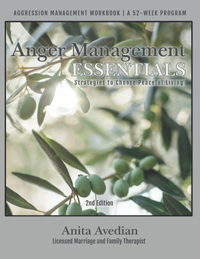DifficultiesThere are many dynamics in regards to relationships, especially romantic ones. Maintaining such relationships require hard work. Sometimes they get to a point of such turmoil that one does not know what action to take in order to improve the situation. This is where counseling can become a very useful resource, and in some cases, a possible solution. There are many factors that may negatively impact a relationship. When these issues are ignored the future of a healthy relationship becomes jeopardized. The foundation of healthy relationships includes the following:
Miscommunication is usually one of the simpler and more common adversities to overcome in a relationship. It takes practice to master the art of effective communication and listening skills. If communication is indeed the issue, learning these skills may help you understand one another as well as feel more understood. Communicating also helps a couple feel more connected, thus improving the fundamental components of the relationship. Identifying and setting boundaries is important to a healthy relationship. Many times one assumes that their partner “should” know what they want, however this is not the case. Boundaries can be physical (such as personal space), emotional (such as trust), and intellectual (when someone does thinking for you). Having boundaries helps an individual feel safe in a relationship; however their expectations and level of comfort need to be communicated effectively, thus increasing the likelihood that these boundaries will be respected. When a relationship lacks boundaries, Co-Dependency oftentimes becomes an issue. Co-Dependency is a reliance on an external element for a sense of self and security where an individual’s self esteem is attached to the ability to influence the behaviors of others. Co-Dependency oftentimes involves an obsession with a partner, thus interfering with daily living. In these relationships there is a high likelihood of alcohol or drug addiction and/or domestic violence. Co-Dependent individuals often find themselves in abusive relationships where their happiness is reliant upon that abusive individual. A great deal of the time, the dependency becomes very complicated and even more so destructive when it becomes the relationship between the drugs or alcohol and the person dependent upon them, and a second person who is then dependent upon the first person who is dependent on the substances. It is a very painful and destructive relationship that continuously reinforces itself, and gets worse through time. Please seek professional help if you or anyone you know is in danger. Trust within a relationship is vital. Oftentimes trust is betrayed at some point and it takes time to repair it. There are different types of trust, for example:
When trust is betrayed it impacts the relationship at the core. Many times a partner gives up on working at the relationship because they have lost that trust in their partner. Seeking professional help to rebuild that trust can be a vital step to mending the relationship. Usually individuals in a relationship like to feel a sense of safety (that their partner will not harm them emotionally or physically) and a sense of security (that their partner will not leave them). Sometimes an individual may not be aware that this is their fear. When the sense of safety and/or security is jeopardized, the relationship may begin to suffer. It is important to share this fear with your partner so that the two of you can work through these problems. When a person no longer feels desired by their partner, insecurities develop and a destructive cycle begins to form. If the individual is feeling certain insecurities, he or she will act on those feelings and potentially begin to harm the relationship, regardless of the intention. Another issue that arises in relationships is when an individual loses desire or interest in their partner. Oftentimes there are underlying reasons outside of physical appearance that contribute to a decline of desire. Keep in mind that these are only some aspects that may impact the companionship negatively. Through couple’s therapy, both individuals can learn, grow, and develop a healthy partnership. |



